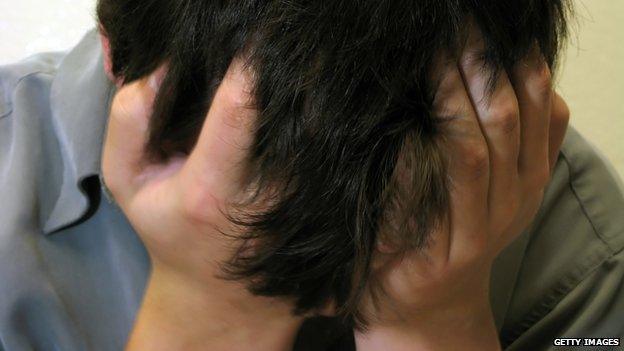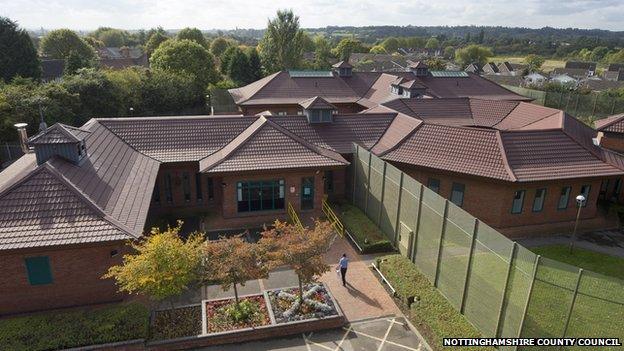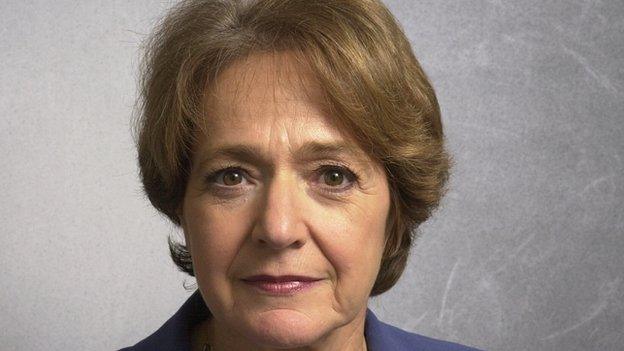Lack of places warning in secure children's homes
- Published

There are warnings that the number of secure places is not keeping up with rising demand
Local authorities are struggling to house some of the most disturbed children because of a shortage of secure places in children's homes.
BBC Radio 4's File on 4 programme found that some children have had to stay on a barge until a bed became available.
Some councils have been forced to take children deemed a danger to themselves on outdoor pursuit courses.
The Department for Education says it has commissioned a review into how secure children's homes are being used.
In one case, a 15-year-old boy who had committed a series of sex attacks absconded from a non-secure children's home where he was being kept because no secure home could or would take him.
'Too violent'
Figures obtained by the BBC show that while two secure homes have closed in the past year and more say they are at risk, demand has been going up.
Courts in England made 269 orders for children to be held securely in 2013, 77 more than in 2010. In order to be admitted to a welfare bed in a secure home, children must be under a court order which says they are a danger to themselves or to others.
There are 15 secure homes in England and Wales, and they can take 100 children at any one time under these orders. They also have beds for a further 150 young offenders who are placed by the Youth Justice Board.

Managers at Clayfields House in Nottinghamshire say they turn down requests for places nearly every day
This is a government body which oversees the youth justice system. It block books beds in secure children's homes to use for young offenders who are too disturbed or too violent to be kept in youth custody.
Experts in the field say there has been a spike in demand for welfare beds because of concerns about sexual exploitation, domestic violence and drug abuse.
File on 4 gained rare access to a secure children's home. At Clayfields House in Nottinghamshire, managers said they had to turn down requests for places almost every day.
Linda Wright, deputy manager of the home, explained that they had admitted children who had previously been kept by local authorities in a range of different locations because no secure bed was available.
She said some children had even come from outdoor pursuit courses.
"Local authorities will have used this thinking some time away in a rural spot camping would be good," she said.
"We've also had a child come here from a barge. I don't really know how successful they are - but I do know the children we've had from these placements have got really complex needs."
Unregulated
File on 4 learned of one case in which a 15-year-old boy who had committed a series of sex attacks absconded from a non-secure children's home where he was placed because no secure placement was available.
The boy, who was released from youth custody in June last year, has since been kept by Lancashire County Council in a single property with several staff to keep him and the public safe. But, legally, if he chooses to leave he can do so.
In this case, the child is being held in a place which can be inspected by Ofsted, but concerns have been raised that some children may be being kept in places which are unregulated.
Gail Hopper, director of children's services at Rochdale council and the spokeswoman on secure accommodation for the Association of Directors of Children's Services, said all children's homes should be regulated by Ofsted, but there were loopholes in the regulations.
"There are some settings that are not regulated and that's obviously an area of concern for a number of local authorities, because you don't have the benefit of the the quality assurance that Ofsted offers," she said.
"If we're talking about a young person with significantly complex needs and their accommodation is in a hotel or a barge, that isn't a setting that is geared up to looking after such a young person and that would give me some concerns."
She said many of these cases would involve young people over the age of 16, who were legally allowed to leave care. The rules also allow for children in care to be taken away for holidays of up to four weeks or to be kept in unregulated "alternative provision".
Ofsted said that although placements such as hotels or rented accommodation were not regulated, local authorities had to ensure they were suitable.
It said the regulations were a matter for the government - but the Department for Education (DfE) declined to be interviewed or to answer any detailed questions.
In a forthcoming report by the Parliamentary Public Accounts Committee, which has been conducting an inquiry into children's homes, the department is likely to be criticised for failing to address the shortage of secure beds.

Margaret Hodge MP wants a national commissioning system for welfare beds in secure homes
The committee's chair, Margaret Hodge, told File on 4 there should be a national commissioning system for welfare beds in secure homes. "If there's a shortage, it makes sense to co-ordinate at the centre. so that you plan," she said.
She said she had not been impressed by evidence given by the DfE to her committee: "The real frustration we felt at the session we had with the DfE was that they were doing everything they could to pass the buck to local authorities and to fail to accept responsibility for intervening on behalf of this very, very vulnerable group of children."
In a statement the Department for Education said: "It is vital that vulnerable young people at risk are identified and protected. We have commissioned a review into how secure children's homes are being used and we will continue to work with councils to look at how the system can best meet the needs of young people."
For more on this story listen to File on 4 on BBC Radio 4 at 20:00 on Tuesday 3 March.